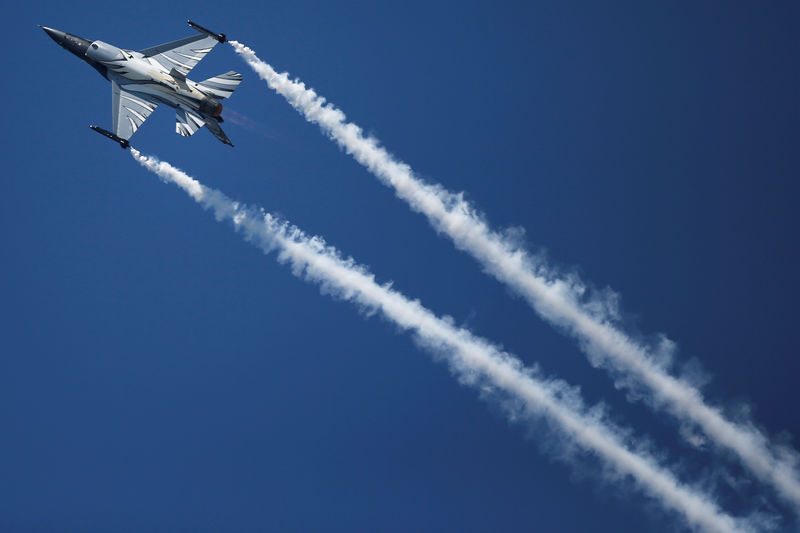By Andrea Shalal
PARIS (Reuters) - U.S. arms makers say European demand for fighter jets, missile defenses and other weapons is growing fast amid heightened concerns about Russia and Iran.
The U.S. government sent a group of unusually high-ranking officials including Commerce Secretary Wilbur Ross to the Paris Airshow this year, where nearly 400 U.S. companies were showcasing equipment as the United States and Iran neared open confrontation in the Persian Gulf.
Lockheed Martin (NYSE:LMT), Boeing (NYSE:BA) and other top weapons makers said they had seen accelerating demand for U.S. weapons at the biennial air show despite escalating trade tensions between the United States and Europe.
"Two Paris air shows ago, there weren't a lot of orders," said Rick Edwards, who heads Lockheed's international division. "Now ... our fastest growth market for Lockheed Martin in the world is Europe."
Many European nations have increased military spending since Russia's annexation of the Crimea region of Ukraine in 2014, bolstering missile defenses and upgrading or replacing ageing fighter jet fleets. NATO members agreed in 2014 to move toward spending 2% of gross domestic product on defence.
Eric Fanning, chief executive of the Aerospace Industries Association, said the NATO pledge and European concerns about Russia were fueling demand. "I do think it reflects the increasing provocations of Russia," he said.
Industry executives and government officials say growing concern about Iran's missile development program is another key factor. Tehran's downing of a U.S. drone came late in the air show, but executives said it would support further demand.
"Iran is our best business development partner. Every time they do something like this, it heightens awareness of the threat," said one senior defence industry executive, who asked not to be named.
Edwards said Lockheed's F-35 stealth fighter, selected by Belgium, is poised to win another new order from Poland, while Bulgaria, Slovakia and Romania are also working to replace Soviet-era equipment.
Edwards and other executives say they see no impact from the ongoing trade disputes between U.S. President Donald Trump and the European Union.
U.S. Army Lieutenant General Charles Hooper, director of the Pentagon's Defense Security Cooperation Agency (DSCA), said Europe accounted for nearly a quarter of the $55.7 billion in foreign arms sales his agency handled in fiscal 2018.
Hooper said the U.S. government was making concerted efforts to speed arms sales approvals and boost sales to help arm allies with U.S. weapons.
Ralph Acaba, president of Raytheon (NYSE:RTN) Co's's Integrated Defense Systems business, said the company was boosting automation and working to deliver the Patriot missile system and other weapons in half the five-year period previously typical.
"Europe is really big for us now, and that's a big change in just the last few years and even the last 18 months," he said.
In addition to wooing new Patriot customers, Raytheon is upgrading existing systems for customers like Germany, which is likely to finalize a contract worth potentially hundreds of millions of dollars to the company in coming months.
Thomas Breckenridge, head of international sales for Boeing's strike, surveillance and mobility programs, is eyeing contracts wins for Boeing's F/A-18 Super Hornet fighter jets in Germany, Switzerland and Finland.

"There's a huge appetite in Europe for defence as a whole," he said.